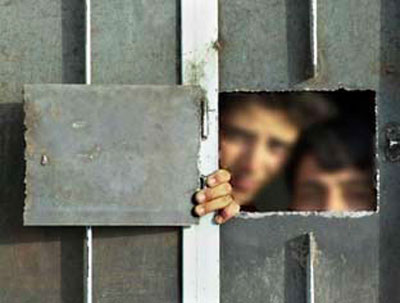
The international community took its strongest action to-date in support of human rights in Iran today, in a major victory for President Obama’s policy of engagement at the United Nations Human Rights Council (HRC). Yet, this accomplishment did not come without controversy. Only four days before, the Chairwoman of the U.S. House Foreign Affairs Committee, Ileana Ros-Lehtinen (Republican-Floria), launched a withering attack against the international human rights body and announced her intention to introduce legislation that would block the United States from running for reelection at the HRC.
Thanks to its active presence on the HRC, the Obama administration was able to work with Sweden and a broad coalition of cross-regional partners to ensure the Council took action on Iran. This groundwork paid off today as the HRC voted to establish an independent human rights monitor on Iran to address the ongoing human rights crisis.
The need for a monitor is clear. Iran’s dismal human rights record has only been getting worse, with the Iranian government going on an “execution binge” and severe penalties for political dissent that have even landed 28 journalists and 9 bloggers in prison.
An independent human rights monitor can provide greater transparency and protect victims by focusing international attention and scrutiny on the Iranian government’s abuses. In fact, a recent study by the Brookings Institution found that human rights monitors are “one of the most effective tools of the international human rights system.”
A human rights monitor was in place for Iran from 1984 to 2002, and Iran’s human rights situation did improve over that time. But the vote to renew the monitor lost by one vote in 2002, while the United States was absent from the UN Human Rights Commission under the Bush administration. Instead, the United States was left to criticize Iran from afar with nothing concrete to actually show for it. Now we see the Obama administration picking up the pieces and rebuilding the international consensus necessary to have a measurable impact on this issue. However, if Ros-Lehtinen gets her way, the effort will come to a crashing halt and a unique opportunity to truly support human rights in Iran would be squandered.
In the case of Iran, a monitor is especially important since the Iranian government is surprisingly sensitive to criticism of its human rights violations. The New York Times’ former Iran correspondent, Nazila Fathi, recently testified that international pressure on human rights makes a difference. She explained that the government constantly pressured her not to report cases of human rights violations or the number of executions that took place, and that pressure was reduced on prisoners when their cases were publicized or when the international community issued statements of concern.
Perhaps this is why Iran’s government has worked so feverishly at the UN and the HRC to block efforts to scrutinize its human rights violations. Recent reports from diplomats in Geneva indicate that Iran lobbied the often-sympathetic Organization of Islamic Conference and Non-Aligned Movement states on the HRC to block the vote to establish a monitor. But like its bid to join the HRC last year, Iran’s efforts were thwarted thanks to the vigorous efforts of the United States at the international human rights body.
As the U.S. Deputy Assistant Secretary of State Suzanne Nossel said at the National Iranian American Council’s recent human rights conference on Capitol Hill, an international rights monitor “carries the imprimatur of the entire international community, and in this case would deliver information and messages that would be difficult for Tehran to dismiss or counter.” In short, an international human rights monitor has more credibility and carries more weight than the statements of any one country.
There’s little likelihood that this success will sway Chairwoman Ros-Lehtinen from pushing forward her legislation attacking U.S. participation at the HRC. Skeptics will argue that the action came too late, although the inconvenient truth is that the United States was reluctant to press the issue earlier, fearing it would divert political capital from its efforts to increase international sanctions to punish Iran for its nuclear program. But in Iran’s century long struggle for democracy, it is better for international action on human rights to have come late than never. And it is safe to say that this action would have never happened without strong backing from the United States.
So while Iran’s diplomats, including its Deputy Foreign Minister, lost the battle at the United Nations Human Rights Council, they can take comfort that if Ros-Lehtinen succeeds their job will be much easier next time. But for now, the Iranian people can take comfort that the international community is finally answering their call for human rights.
AUTHOR
David Elliott is the assistant policy director for the National Iranian American Council. This article first appeared in the Congressional newspaper, “The Hill”.






